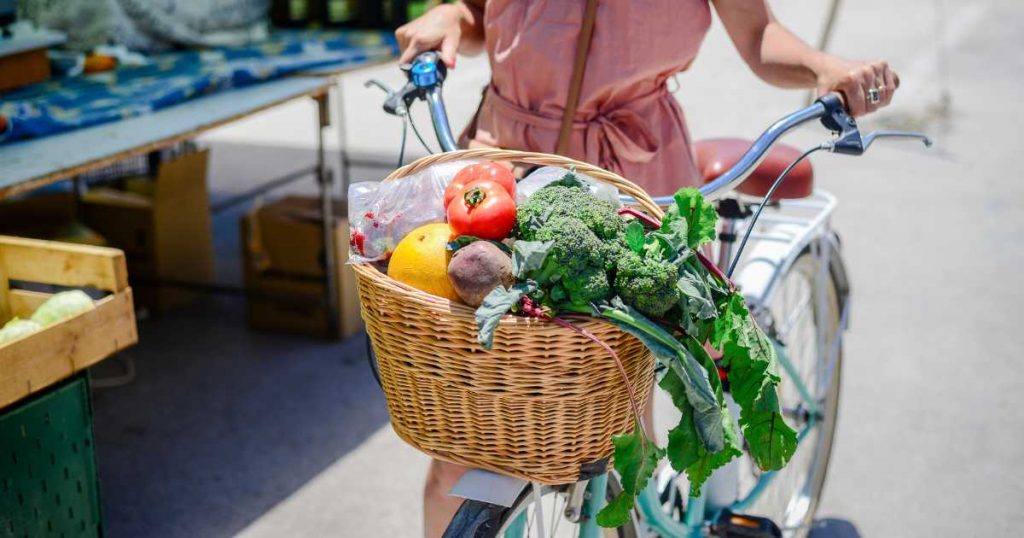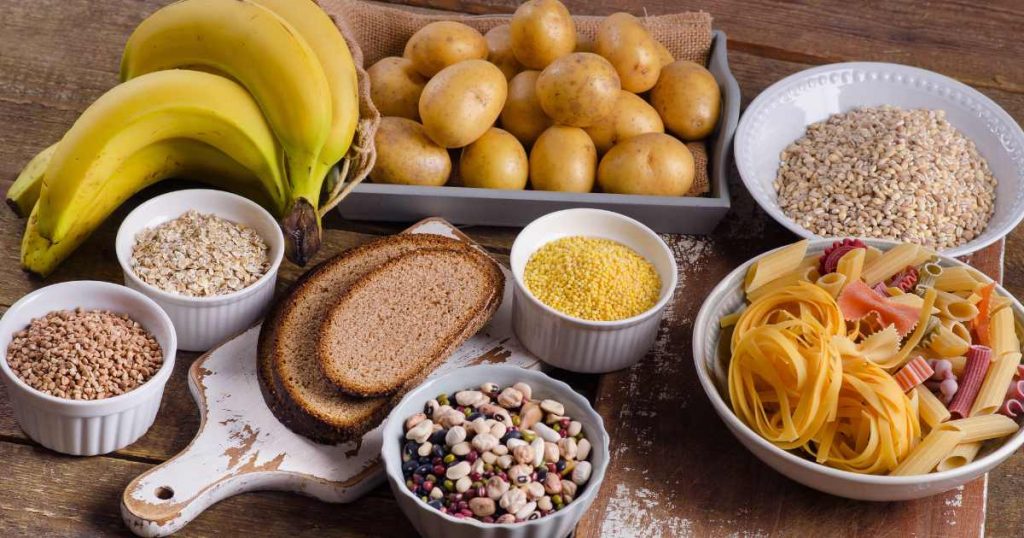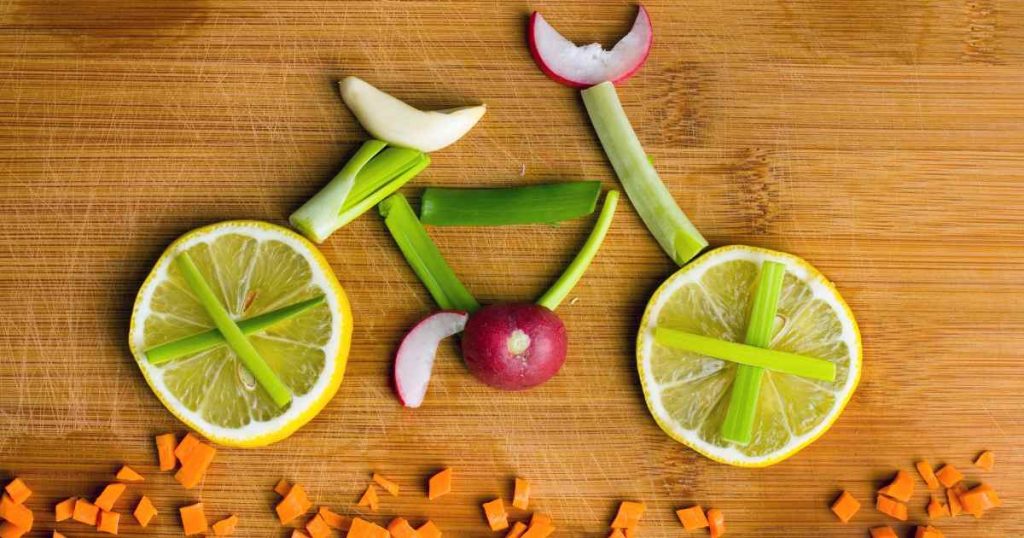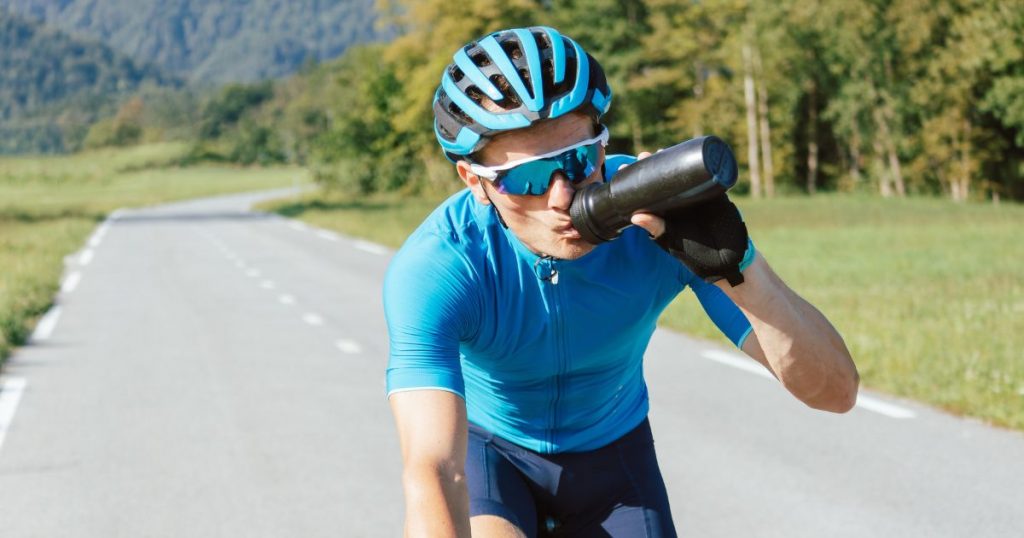Cyclists know that a proper diet is essential for optimal performance. A balanced cycling diet adapted to the demands of training can make the difference between a mediocre or outstanding performance during your cycling adventure.
In this article, we at Bikeit will explore the basic principles that a cyclist should follow for a proper diet, because nutrition and cycling are two elements that should always go together.

How diet can affect cycling performance
Nutrition plays a key role in sporting performance, so certainly diet for cycling is also an integral part of your training regime if you are a cyclist or are just beginning to take up the sport.
- An inadequate diet can lead to a decrease in energy and stamina, resulting in lower performance.
- A balanced diet rich in essential nutrients can help improve endurance, increase muscle strength and reduce the risk of injury.
What to include in your cycling diet
All sportsmen and women, but particularly cyclists, should consume nutritious and balanced food to maintain good health and maximise performance.
The diet for cycling should be rich in carbohydrates, proteins, healthy fats, vitamins and minerals, and athletes should drink plenty of water to maintain hydration and prevent muscle fatigue.
Carbohydrates in the cycling diet
Carbohydrates are essential to provide the body with the energy it needs during training. However, there are conflicting ideas for carbohydrate intake:
- Some cyclists follow low-carbohydrate diets to improve performance and reduce body fat, such as eggs, fish, lean meat, green leafy vegetables, nuts and seeds.
- Other cyclists prefer to consume more carbohydrates to maintain energy during training, thus consuming rice, pasta, bread, spelt, but especially potatoes and pulses, which are rich in carbohydrates.
In general, it is important to choose complex carbohydrates, which have a low glycaemic index and provide long-term energy, and to avoid simple carbohydrates, such as sugar and white flour, which can cause blood sugar spikes and energy drops.

Ideal proteins in the cycling diet
Protein is an essential nutrient for the growth and restoration of muscle tissue, and is particularly important for cyclists who subject their bodies to heavy physical stress.
The ideal proteins in the cycling diet are those of high quality, i.e. those that contain all the essential amino acids that our bodies cannot produce on their own, such as lean meat, fish, eggs, dairy products, soya and pulses.
Remember that, during training, our body uses protein as an energy source, so it is important to consume it in sufficient quantities to help prevent muscle breakdown and promote muscle tissue repair. However, it is also important not to overdo the intake, as too much can put a strain on the kidneys and cause other health problems.
Supplements and minerals for cycling
Between the cycling supplements essential, in addition to carbohydrates and proteins of course, there are the fatty acids omega-3 which are important for joint and heart health, while minerals such as iron and zinc are essential for oxygen transport in the blood and tissue repair.
Finally, don’t forget to include a variety of fruit and vegetables in your diet to ensure your intake of vitamins and antioxidants important for general health and muscle function.
Cycling diet examples
A proper cycling diet must be balanced and proportionate to the intensity and duration of training, as well as the individual needs of each cyclist.
We at Bikeit can only give you a few tips for proper nutrition, but we recommend that you consult a nutritionist to tailor your diet to your personal needs.

1. Complete cycling diet
The cyclist’s breakfast is certainly one of the most important meals of the day, as it provides the energy needed to sustain physical activity. But let’s take a closer look at a complete example of a diet for cycling:
- Breakfast: omelette with vegetables and low-fat cheese, a slice of toasted wholemeal bread, 1/2 avocado, and a cup of black coffee.
- Snack: an energy bar.
- Lunch: mixed salad with grilled chicken breast, quinoa, vegetables, chickpeas, and a light vinaigrette.
- Snack: a piece of fruit and a packet of almonds.
- Dinner: grilled salmon with asparagus, baked potatoes and a portion of brown rice.
2. Carbohydrate diet
Carbohydrate-based meals:
- Breakfast: oat porridge with dried fruit and honey.
- Pre-workout snack: banana and energy bar.
- During training: sports drink.
- Lunch: wholemeal pasta with tomato and basil, mixed salad.
- Afternoon snack: fresh fruit, Greek yoghurt and muesli.
- Dinner: brown rice with grilled vegetables and tofu.
3. Protein diet
Protein-based meals:
- Breakfast: whole egg omelette with vegetables and toasted wholemeal bread.
- Pre-workout snack: Greek yoghurt with muesli and fresh fruit.
- During training: sports drink.
- Lunch: chicken salad with avocado, lettuce, tomatoes and red onions.
- Afternoon snack: fresh fruit, almonds and low-fat cheese.
- Dinner: grilled beef steak with asparagus and roast sweet potatoes.
Proper hydration in the cycling diet
Hydrating properly during a cycling diet is essential for maintaining high energy levels and performance.
It is essential to drink water regularly to avoid dehydration, but also to supplement sports drinks containing electrolytes and carbohydrates for better hydration and energy support.
In addition, it is important to plan your hydration according to the duration and intensity of your training, and to remember to drink after exercise to restore hydration levels and help your body recover.
Correct hydration is therefore also essential to get the most out of your performance on your bike.

Book your bike trip with Bikeit
Certainly, an ideal cycling diet can be useful for cyclists wishing to improve their performance and increase energy during their cycling holiday.
However, it is important to choose the correct cycling diet suited to your physical needs and requirements in order to maximise the benefits.
Before starting a specific diet, it is always advisable to consult a nutritionist to make sure it is suitable for your health.
Remember, nutrition and cycling are two essential elements that must be perfectly balanced so that you can enjoy your cycling adventure to the fullest, along the best cycling routes, with Bikeit.
Are you satisfied with the advice on the ideal cycling diet? Are you ready and loaded to jump on your bike seat and enjoy the nature around you? So, what are you waiting for?




